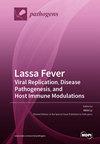涉及犬感染的甲氧西林敏感和甲氧西林耐药假中间葡萄球菌菌株的基因组分析:全面的基因型鉴定
IF 3.3
3区 医学
Q2 MICROBIOLOGY
引用次数: 0
摘要
假中间葡萄球菌经常与犬的多种细菌感染有关,由于其具有人畜共患病的潜能,引起了人们对 "一个健康 "的关注。鉴于这种病原体的临床意义,我们使用 Illumina HiSeq 对从犬感染中分离出的 28 株假中间葡萄球菌进行了全基因组测序,并比较了假中间葡萄球菌耐甲氧西林(MRSP)菌株和甲氧西林易感(MSSP)菌株之间的遗传特征。我们的分析表明,MRSP基因组比MSSP菌株大,抗菌素耐药基因和毒力标记有显著变化,表明MRSP和MSSP菌株的致病性不同。此外,对犬源和人源伪中间肠球菌进行的泛基因组分析发现,核心基因组和附属基因组分别有 1847 个和 3037 个基因,这表明伪中间肠球菌基因组的大部分都是高度可变的。此外,尽管感染部位不同,但系统发生组分析清楚地将 MRSP 与 MSSP 菌株区分开来,并根据甲氧西林敏感性显示出系统发生差异。总之,我们的研究结果凸显了研究假性金黄色葡萄球菌进化动态的重要性,这对于制定有效预防和控制耐药假性金黄色葡萄球菌感染的策略至关重要。本文章由计算机程序翻译,如有差异,请以英文原文为准。
Genomic Analyses of Methicillin-Susceptible and Methicillin-Resistant Staphylococcus pseudintermedius Strains Involved in Canine Infections: A Comprehensive Genotypic Characterization
Staphylococcus pseudintermedius is frequently associated with several bacterial infections in dogs, highlighting a One Health concern due to the zoonotic potential. Given the clinical significance of this pathogen, we performed comprehensive genomic analyses of 28 S. pseudintermedius strains isolated from canine infections throughout whole-genome sequencing using Illumina HiSeq, and compared the genetic features between S. pseudintermedius methicillin-resistant (MRSP) and methicillin-susceptible (MSSP) strains. Our analyses determined that MRSP genomes are larger than MSSP strains, with significant changes in antimicrobial resistance genes and virulent markers, suggesting differences in the pathogenicity of MRSP and MSSP strains. In addition, the pangenome analysis of S. pseudintermedius from canine and human origins identified core and accessory genomes with 1847 and 3037 genes, respectively, which indicates that most of the S. pseudintermedius genome is highly variable. Furthermore, phylogenomic analysis clearly separated MRSP from MSSP strains, despite their infection sites, showing phylogenetic differences according to methicillin susceptibility. Altogether our findings underscore the importance of studying the evolutionary dynamics of S. pseudintermedius, which is crucial for the development of effective prevention and control strategies of resistant S. pseudintermedius infections.
求助全文
通过发布文献求助,成功后即可免费获取论文全文。
去求助
来源期刊

Pathogens
Medicine-Immunology and Allergy
CiteScore
6.40
自引率
8.10%
发文量
1285
审稿时长
17.75 days
期刊介绍:
Pathogens (ISSN 2076-0817) publishes reviews, regular research papers and short notes on all aspects of pathogens and pathogen-host interactions. There is no restriction on the length of the papers. Our aim is to encourage scientists to publish their experimental and theoretical research in as much detail as possible. Full experimental and/or methodical details must be provided for research articles.
 求助内容:
求助内容: 应助结果提醒方式:
应助结果提醒方式:


